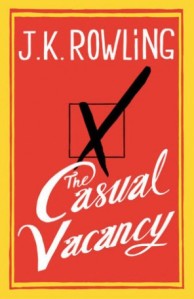 Blurb: Before Peter Pan belonged to Wendy, he belonged to the girl with the crow feather in her hair. . . .
Blurb: Before Peter Pan belonged to Wendy, he belonged to the girl with the crow feather in her hair. . . .
Fifteen-year-old Tiger Lily doesn’t believe in love stories or happy endings. Then she meets the alluring teenage Peter Pan in the forbidden woods of Neverland and immediately falls under his spell.
Peter is unlike anyone she’s ever known. Impetuous and brave, he both scares and enthralls her. As the leader of the Lost Boys, the most fearsome of Neverland’s inhabitants, Peter is an unthinkable match for Tiger Lily. Soon, she is risking everything—her family, her future—to be with him. When she is faced with marriage to a terrible man in her own tribe, she must choose between the life she’s always known and running away to an uncertain future with Peter.
With enemies threatening to tear them apart, the lovers seem doomed. But it’s the arrival of Wendy Darling, an English girl who’s everything Tiger Lily is not, that leads Tiger Lily to discover that the most dangerous enemies can live inside even the most loyal and loving heart.
From the New York Times bestselling author of Peaches comes a magical and bewitching story of the romance between a fearless heroine and the boy who wouldn’t grow up.
Review: God, I am such a sucker. Give me an excellent ending and I will add at least one star to any rating. While reading Tiger Lily, I was merely whelmed. But then the final chapters slapped me in the face and made me cry and I’m like okay okay I’ve totally forgotten everything that was whelming since now I am overwhelmed! Just stop making me cry please! Please?
What didn’t impress me was the narration. Although a daring choice, Tinker Bell narrating a story that belonged entirely to Tiger Lily held me at a distance. Tiger Lily’s feelings get lost as they’re processed through another character. This story is very much about the slightest changes in her feelings, and much of these changes are difficult to observe from Tink’s perspective. So for the first half of the novel, I didn’t believe or care about the love story of Peter and Tiger Lily. They fell in love so fast but I wasn’t sure why or how or even when.
There is also too much exposition. The first third of the book was lollygagging, plain and simple. It takes way too long for Tiger Lily to meet Peter and then it takes way too long for Wendy to arrive in Neverland. Of course, if you’ve read original Peter Pan, you will be awaiting these developments, and the amount of time it takes for them to happen will test your patience.
I did appreciate how Anderson tweaked the tale to recount a much darker story about the effects of colonialism tempered by a bittersweet story of first love. Peter Pan is a story about time, a story about how time marches forward always. Always. In this retelling, the Englanders have arrived and push the native tribes of Neverland to adopt their culture. The effects are tragic. Yet the Neverlanders can only watch as the times change around them in a land that once was static. This story finds a lovely parallel with the love story of Tiger Lily and Peter. Both the Neverlanders and Tiger Lily learn that a moment exists only once. They learn that the evanescence of time can be catastrophic, and we see this lesson unroll on a societal level and on an individual level.
That mélange of faults and strengths made Tiger Lily a fine but ultimately mediocre read. But then, much like in the source material Peter Pan, the finale is a tour de force. There is so much beautiful writing in the final chapters. The words drip with suffering. The fate of Neverland, Tiger Lily, Peter—the fate of every character—forces you to stare directly into the harshness and inevitability of time. It will hurt your heart.
Every kind of love, it seems, is the only one. It doesn’t happen twice.
4 out of 5 stars



